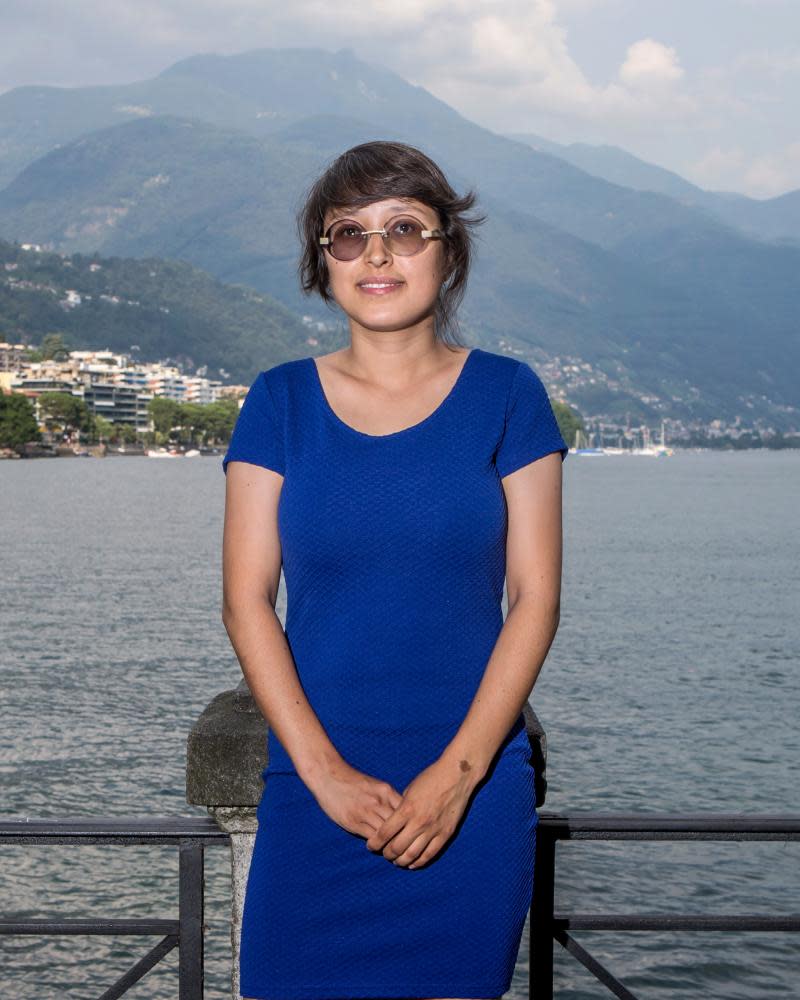Young film-maker finds love and laughter amid the tragedy in Afghanistan’s first romcom
There are few pavements in Kabul, so when Shahrbanoo Sadat steps out for her daily walk, she shares the roads with cars and tanks. Military helicopters swirl overhead, creating vast clouds of dust.
There are thousands of reasons why you shouldn’t walk around this city, she says, and most people don’t.
“It’s a crazy town and sometimes it is scary. But for me, I just love it. You never know what’s going to happen. It makes me feel alive”.
It’s that adrenaline rush that’s kept the 30-year-old film-maker rooted to a city while others, including her closest friends, have fled. An unlikely place, perhaps, to make her third film – billed as Afghanistan’s first romantic comedy.
“You rarely see a comedy or a musical coming from war-torn countries. There’s this idea that your stories have to be about suffering – and yes, one side of life is full of tragedies. But there are also so many things to laugh about,” Sadat says.
The film, Kabul Jan, is a semi-autobiographical tale of a young female camera operator who falls in love with an older, married man – a reporter. One of the main aims, Sadat says, is to challenge the stereotype of Afghan women as weak and repressed.
“You see a lot of things she’s up against in her work – fighting for very basic rights every day – but you do not see a victim,” Sadat says.
The story is closely tied to her own experience, more than a decade earlier, when she had moved to Kabul after growing up in the mountains of central Afghanistan and begun a relationship with an older male colleague. Incredibly, the two discovered they were actually cousins who had grown up in the same village decades apart.
It was that revelation that would inspire her to write her first movie, Wolf and Sheep, based on their shared memories of growing up there – a landscape she describes as “the end of the world”.

The film won a prize at the 2016 Cannes Film Festival and made Sadat one of the top-rated directors outside Hollywood.
Her second film, The Orphanage, is available on Amazon Prime from Tuesday.
“I want to redefine Afghanistan in the film market. This is my dream,” says Sadat. “I have the ideas, I have the details, I have the stories.”
All her films are linked by the presence of a male character called Quodrat – a child in the first film, a teen in the second and the male romantic interest in the third.
The series (she plans five in total) charts his life and adventures in Afghanistan – echoing many of her own experiences growing up in a poor, rural community where she walked six hours a day to and from school.
Her film-making reflects her training at the French Institute of Afghanistan in Kabul where she fell in love with the documentary style of cinéma vérité. “Cinema is all about observation and it’s what I’ve been doing all my life,” she says. “I was never part of any club, I was always on the outside, watching other people.”
Sadat was one of the last students to take that workshop. The following year, in 2010, her teacher was killed in a suicide attack and the course closed down.
It was another reminder that Kabul is a perilous place to work – and probably more so now than at any time before, she believes – in the midst of uncertain peace talks and with the Taliban in the ascendancy once again.
She recognises her love for a city where a bomb might explode at any moment might seem strange to people. “But my life has meaning here,” she says. “I feel like I’m doing something for a place that needs me.”

 Yahoo Finance
Yahoo Finance 